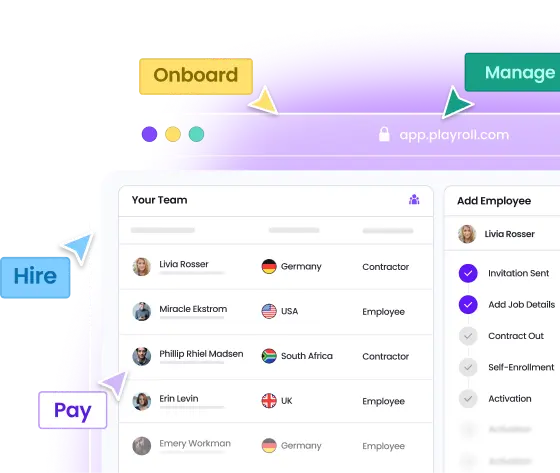What Are the Standard Working Hours in Morocco?
In Morocco, the standard working week is set at 44 hours, typically spread over six days. This means employees usually work 8 hours per day, with a maximum of 10 hours on any given day. The standard workweek often runs from Monday to Friday, with Saturday being a rest day.
Employees under the age of 18 are subject to stricter regulations, including shorter daily working hours and additional protections.
Maximum Working Hours in Morocco
Moroccan labor law caps the maximum working hours at:
- 44 hours per week
- 10 hours per day
These limits are designed to protect workers from excessive work hours. However, there are provisions for overtime under specific conditions.
Industry-Specific Exceptions
Certain industries may have unique working hour regulations due to the nature of the work. For instance:
- Healthcare and Emergency Services: Workers may be required to work beyond standard hours to ensure continuous care.
- Hospitality and Retail: These sectors often operate during evenings and weekends, necessitating flexible working hours.
Such exceptions are typically outlined in collective agreements or specific labor contracts.
Managerial and Exempt Employees
Managerial or exempt employees, often in senior positions, may not be subject to the standard working hour limitations. Their work hours and compensation are usually determined by their employment contracts and the nature of their duties.
Statutory Full-Time Working Hours in Morocco
Full-time employment in Morocco is generally defined as working the standard 44-hour workweek. This applies across various industries, with some sectors having specific agreements that may slightly adjust these hours.
Overtime Regulations in Morocco
Overtime is permitted in Morocco but is subject to strict regulations to ensure fair compensation for additional work.
What Counts As Overtime in Morocco?
Overtime refers to any work performed beyond the standard 44-hour workweek. This includes:
- Hours worked beyond the standard daily limit
- Work on rest days or public holidays
Employees must agree to overtime, and it should be clearly stated in their employment contracts.
Maximum Overtime in Morocco
The law allows a maximum of 250 overtime hours per year. Employers must ensure that overtime does not exceed this limit to comply with labor regulations. Additionally, overtime must not exceed 138 hours over a four-month period.
Overtime Payout Rates in Morocco
Overtime compensation is calculated based on the following rates:
- Regular Days (6 AM – 9 PM): 125% of the regular hourly wage
- Night Hours (9 PM – 6 AM): 150% of the regular hourly wage
- Rest Days/Public Holidays:
- Daytime (6 AM – 9 PM): 150% of the regular hourly wage
- Nighttime (9 PM – 6 AM): 200% of the regular hourly wage
Rest Periods and Breaks in Morocco
Employees are entitled to:
- Daily Rest: A minimum of 11 consecutive hours between two working days.
- Weekly Rest: At least 24 consecutive hours of rest per week, typically granted on Sunday.
- Meal Breaks: A minimum break of 30 minutes for meals or rest if the working day exceeds six hours.
Employers are responsible for ensuring these rest periods are observed to maintain employee well-being.
Night Shifts and Weekend Regulations
Night shifts are typically defined as work performed between 9 PM and 6 AM. Employees working during these hours are entitled to higher overtime rates, as previously mentioned.
Work on weekends, especially on Sunday, is generally restricted. If employees are required to work on their rest day, they must be compensated accordingly, either through higher pay or compensatory time off.
Disclaimer
THIS CONTENT IS FOR INFORMATIONAL PURPOSES ONLY AND DOES NOT CONSTITUTE LEGAL OR TAX ADVICE. You should always consult with and rely on your own legal and/or tax advisor(s). Playroll does not provide legal or tax advice. The information is general and not tailored to a specific company or workforce and does not reflect Playroll’s product delivery in any given jurisdiction. Playroll makes no representations or warranties concerning the accuracy, completeness, or timeliness of this information and shall have no liability arising out of or in connection with it, including any loss caused by use of, or reliance on, the information.
.svg)
.svg)
.svg)





.svg)



.png)












.webp)









.svg)